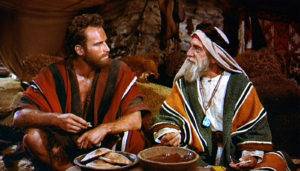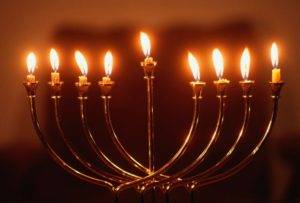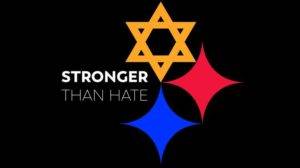I, like so many others, have struggled with Abraham’s responses to God in the stories of Vayera. Why was our Patriarch eager to confront God and bargain to save Sodom and Gomorrah and then be so passively accepting of God’s command to kill Isaac? Abraham responds to what he heard, a message filtered by his own biases and his perception of God, the other in this relationship.
In the Akedah, God instructs Abraham in painful detail, “Take your son, your only son, the one that you love, Isaac, go to Moriah and offer him as a burnt offering.” God is carefully staking out Abraham’s test of faithfulness. There is no room for a conversation. The Akedah is so intense; it is almost impossible for Abraham to catch his breath, let alone say something in response. Although there is no conversation, the ensuing language makes it clear that the next three days, Abraham is thoroughly deliberate traveling to Mt. Moriah. Abraham cannot deliberate with God, but it is clear he is consumed in his mind by what is to come.
Sodom and Gomorrah were decidedly different. God deliberates about telling Abraham His plan, which included assessing the situation on the ground, framing an invitation to a conversation. Abraham joins in, and God encourages it by continuing to engage Despite the trepidation of arguing with the God of Justice about acting justly, Abraham bargains to lower the number of righteous needed to spare the city until he reaches what he perceives as the best he can do, 10- a minyan. The negotiating ends with the best deal Abraham believes he can achieve.
How we hear and understand something sets the table for how we respond to it. Why Abraham feels he has license to argue in one case and not in the other remains one of the mysteries of our text. But it is all too familiar territory for all of us. Each of us responds to what we think we have heard, rendering very different responses, even to the same person, based on the facts and our emotional and situation, among other factors.
What do we hear when another speaks? Have they spoken undeniable truth, or is it an invitation to engage to achieve a better understanding of each other? Knowing when to speak and when to be silent is among the more difficult decisions we make. Grappling with this issue is as hard for us as it was for Abraham. Our tradition encourages us to confront it.
The practice of Mussar works hard at getting us to understand the virtues, or middot, that drive both the person with whom we are in relationship and us. We learn that the successful relationship requires that we appreciate the middot are working on both of us so that it can be complicated. We often do not get it right, but we stand a better chance of engaging in meaningful dialogue when we try. Abraham’s inconsistent reactions to God is a lesson with a timeless message, certainly one that is pertinent to today. Torah is a profound understanding of the human condition. The issues Abraham and all the characters of our tradition confront are genuinely human issues, as relevant today as they were when first written down. Let’s try harder to listen better to understand each other.
Shabbat Shalom



